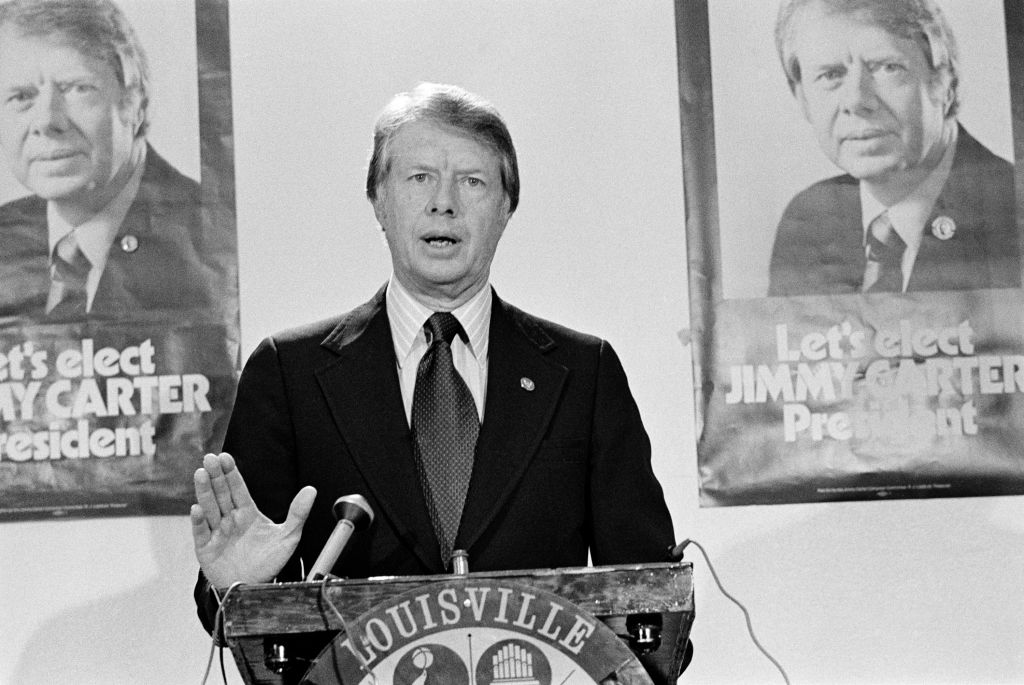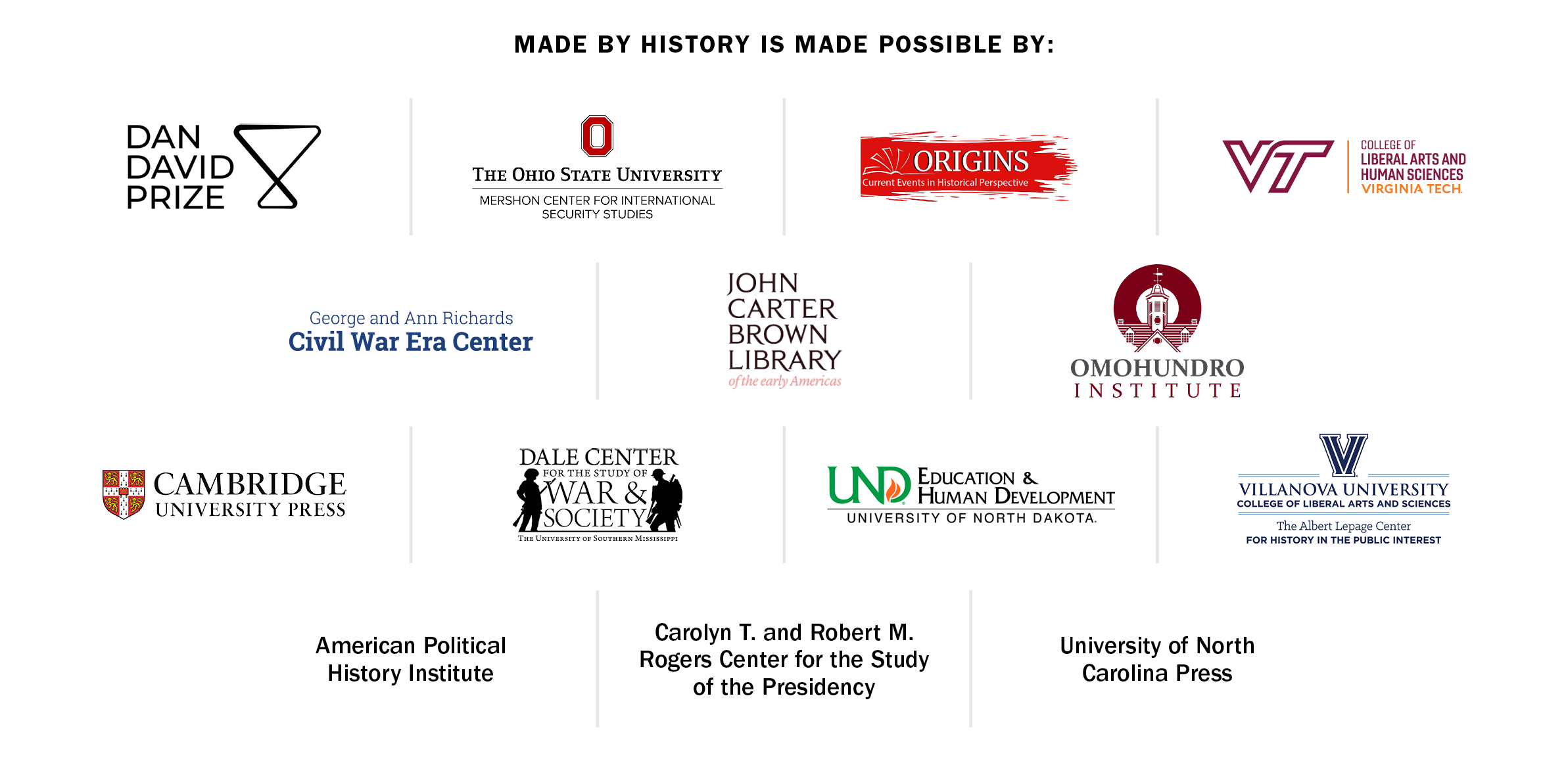
It took Republicans more than three weeks, and three failed attempts, to select Louisiana Representative Mike Johnson as the new Speaker of the House. The paralysis this caused exacerbated the long term public distrust in government that dates to the late 1960s. Even before the House flailed for weeks, fewer than one in five Americans believed Congress could be trusted to formulate national policy or that the executive branch could execute it. This anti-politics sentiment, to a striking extent, crosses party and ideological lines.
At first glance, identifying the cause of this distrust seems easy: four decades of steadily escalating anti-government rhetoric from a new breed of conservative Republicans. As Ronald Reagan famously declared in his first inaugural address, "government is not the solution to our problem; government is the problem." And the House’s intense struggle to even pass a bill to keep the government open through mid-November, followed quickly by Republicans’ inability to coalesce around a speaker, has exposed how brinksmanship over the most essential governing tasks is now endemic to modern American conservatism.
Yet, Americans have not turned against the idea of a robust government. Rather, as much as Americans don’t trust government to operate effectively, significant majorities still support government action to “strengthen the economy,” lower healthcare costs, protect the environment, maintain fair workplace standards, and rebuild crumbling infrastructure.
More From TIME
Their seemingly conflicted feelings date to the 1976 presidential campaign of Jimmy Carter. His successful run for the presidency as an outsider began a trend in which lambasting government made for good politics. But as history shows us, by running against "the system,” politicians have undermined Americans’ faith in government.
Carter began as the longest of longshot candidates. He was a one-term Georgia governor with scant national name recognition. He aimed to become the first Deep South president since 1850. To many Northern voters and political commentators, Carter’s profound Baptist faith seemed eccentric. “Relax,” archly counseled The Washington Post’s Sally Quinn. “He’s not crazy. He’s just Southern.”
Read More: Mike Johnson Elected As House Speaker After Weeks of Turmoil
To overcome these odds, Carter ran an almost flawless primary campaign that became the model for all future candidates. His team focused on making Carter a personality and spotlighted his values using a sophisticated media strategy. They pioneered a focus on early-voting states.
But Carter also had to differentiate himself from a large primary field of Democratic contenders. That meant painting himself as a sensible “New South” moderate in contrast to Alabama’s notorious governor George Wallace.
But trickily, the rest of his serious rivals spanned the party’s ideological spectrum, ranging from Washington Senator Henry “Scoop” Jackson, a culturally-moderate economic New Dealer and foreign-policy hawk, to Arizona Representative Morris Udall, who represented a new type of socially liberal Democrat less moored to New Deal-Cold War labor politics, and focused on “quality of life” issues such as environmentalism.
Thankfully for Carter, his rivals were creatures of Congress, which enabled him to shrewdly avoid having to run against them individually and ideologically. Instead Carter could campaign against the national political system and the federal government itself—which he depicted as corrupt and inefficient. By doing so, Carter could exploit what political scientist Walter Dean Burnham termed an “enormous crisis of political legitimacy” that had arisen from 1960s social change, the catastrophe of Vietnam, and Watergate. As one campaign memo put it, Carter’s team wanted voters to see a potential administration as a “fresh start” that made government “responsive.”
To engineer this perception, the Georgian pioneered the idea that government ought to function as the private sector did, pledging to bring “tight businesslike management” to Washington’s “horrible bureaucratic mess.” At the centerpiece of this push was an arcane policy proposal: zero-based budgeting (ZBB), under which every agency and department began the fiscal year with a budget of $0. As part of a reorganization of state government, Carter had partially implemented this system in Georgia. While not typically a topic that would excite voters, the candidate claimed that this proposal was evidence that he was the man who could make the federal government efficient by taming the bureaucracy.
Federal zero-based budgeting ended up having minimal long-term policy impact (none other than Ronald Reagan rolled it back). But the proposal epitomized how Carter’s relentless assault on the federal government during the campaign began to reorient national politics toward a view of government as inherently inefficient, opaque, and unresponsive. His advocacy for ZBB lastingly identified “good government” with “businesslike” management and fiscal austerity.
Years before anti-government conservatives were swept into power, this rhetoric helped convince Americans who had justifiably lost confidence in Washington that restoring government required an outsider who would shake things up. Once Carter captured the White House with this barrage, he created a model for every presidential candidate moving forward.
With the exception of George H.W. Bush, each president from 1980 to 2016 claimed to be an outsider to Washington politics. Even incumbent presidents often won reelection presenting themselves as anti-Washington “insurgents” or their opponents as “insiders.” Donald Trump’s exhortation to “drain the swamp” was only the latest use of Carter’s playbook. Indeed, Carter’s main pollster, Pat Caddell, advised the 2016 Trump campaign. Even Carter’s concept of ZBB has proved potent: Vivek Ramaswamy is the latest “outsider” Republican candidate to revive it as he inveighs against Washington corruption and waste.
Read More: Approval of Congress Hits Near-Record Low as Country Stumbles Toward Shutdown
Yet, this rhetoric about government inefficiency has not dented Americans’ desire for government programs that would improve society. Instead, this anti-politics approach has destroyed Americans’ trust in government’s ability to implement the very sort of programs they continue to want. A vicious cycle has ensued: distrust in government understandably makes politicians wary of pursuing bold, expensive new programs. Their failure to deliver, in turn, exacerbates public perceptions that both Congress and the executive branch are inefficient, and this understanding then further constrains political ambitions. So entrenched is a perception of governmental inefficiency, that the more popular a public program, the less likely Americans have been to actually associate it with government!

This vicious cycle has long explained why Democrats, once in office, hesitate to embrace their own ambitious policies. Bill Clinton entered office with grand visions of high-tech industrial planning, but retreated from them in the first year of his presidency. Barack Obama included significant middle-class tax cuts in his American Recovery and Reinvestment Act and then chose not to tout them to voters. Even today’s resurgent Left, which seeks a far more activist government, has been influenced by anti-government politics. Responding to left-wing criticism that she became an “insider,” New York Representative Alexandria Ocasio-Cortez ruefully commented that the Left has internalized “an inherent association between power…and quote-unquote selling out.”
Why is hostility towards government widespread even as Americans claim to want more and better government programs? Since Carter, politicians on both sides of the aisle have argued our government can’t be trusted to deliver such programs. It’s an unfortunate legacy for a lifelong public servant whose actual presidency was more accomplished than popular memory suggests.
This attitude helps explain why Joe Biden—the first president since 1976 to embrace the identity of a Washington “insider”—struggles with low approval ratings despite a plethora of domestic policy achievements. Carter’s success indicates that he would be better off talking less about these achievements, and more about Republicans’ dysfunction in the House. But doing so would perpetuate the same cycle of public distrust. “It’s Republicans and Democrats, and they’re all dysfunctional,” remarked one GOP pollster recently about the chaos in the House. “For voters, it’s just further evidence that Washington can’t address their problems.”
Henry M. J. Tonks is a PhD candidate in history at Boston University, where his research focuses on the Democratic Party from the 1970s to the 1990s.
Made by History takes readers beyond the headlines with articles written and edited by professional historians. Learn more about Made by History at TIME here.
More Must-Reads from TIME
- Cybersecurity Experts Are Sounding the Alarm on DOGE
- Meet the 2025 Women of the Year
- The Harsh Truth About Disability Inclusion
- Why Do More Young Adults Have Cancer?
- Colman Domingo Leads With Radical Love
- How to Get Better at Doing Things Alone
- Michelle Zauner Stares Down the Darkness
Write to Henry M. J. Tonks / Made by History at madebyhistory@time.com
